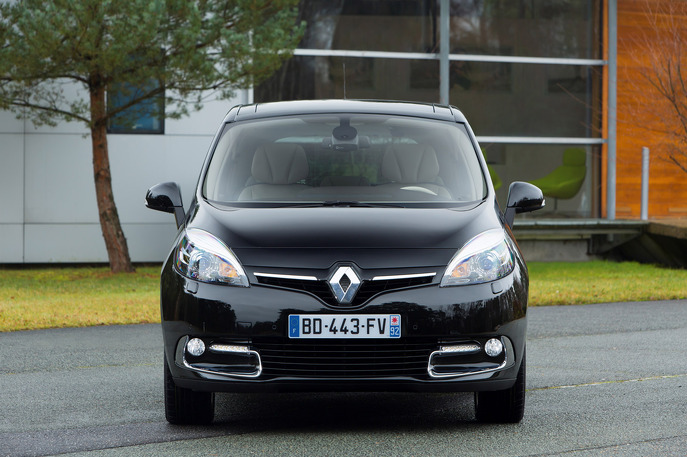Renault and CNRS sign a new framework agreement

· Renault and France's National Centre for Scientific Research (CNRS) have signed a new four-year framework agreement.
· The new framework agreement covers new collaborative research and innovation opportunities for the years ahead.
· Research areas include neuroscience, virtual reality, ergonomics, new materials and catalysis.
Renault and the CNRS have been working together for decades and have signed several framework agreements since 1993. Recent changes in the research landscape and scientific strategies of both partners have prompted a review of the terms of the framework agreement. Following one year of talks on scientific, strategic and legal issues, Renault and the CNRS are pleased to announce that a new framework agreement was signed on May 15, 2013, and will remain in force for the next four years.

The new framework agreement will give a long-term perspective to the research work currently carried out alongside CNRS researchers, while also covering new collaborative research and innovation opportunities in the years ahead. The new research areas for Renault and CNRS teams include neuroscience, virtual reality, ergonomics, new materials and catalysis.
Innovation is part of the genetic make-up of both the CNRS and Renault. Renault's R&D team has a long tradition of developing cars with innovative vehicle architectures (hatchbacks and MPVs) and inventing models tailored to new types of vehicle use (Twizy). Electric vehicles (ZOE) are another example of Renault setting the industry standard. Leveraging innovation to boost competitiveness, Renault draws on a network of partnerships with public research bodies, in particular the CNRS.
CNRS researchers have worked closely with Renault for many years. Around 100 contracts have been signed between Renault and the CNRS since early 2010, including consortium agreements, research partnerships, service provision agreements and equipment and expertise transfers, etc.). More than one-third of these contracts cover cooperation projects spanning several years, including research fellowships. Nearly 100 CNRS labs around France conduct research alongside Renault. These labs are located in Lyon, Lille, Montpellier, Clermont-Ferrand, Rouen, Paris, Orleans, Bordeaux, Poitiers, Grenoble, Rennes and Strasbourg.
Scientific cooperation mainly covers engineering sciences and systems, in particular combustion, fatigue of materials, thermal engineering and aeroacoustics.
The Information Processing and Communication laboratory at the CNRS also works with Renault on researching the future of passenger transport and electric motoring. This research is partly carried out under the aegis of the Sustainable Mobility Institute, which was founded jointly by Renault and Paris Tech in 2009 (http://www.mobilite-durable.org/nos-partenaires/institut-de-la-mobilite-durable.html).
This strategic partnership between Renault and France's leading public research body will help to develop new sustainable mobility solutions for our society.
About CNRS
France's CNRS (Centre National de la Recherche Scientifique) is the country's leading public research body and comes under the control of the Ministry for Further Education and Research. Its mission is to produce knowledge for the benefit of society. Total staff exceeds 34,000 (25,630 statutory employees: 11,450 researchers and 14,180 engineers, technicians and administrative staff). Its initial budget for 2011 was €3,204 billion, including €677 million in self-owned resources. The CNRS is active across the country and covers all fields of knowledge, with input from more than 1,100 research and service facilities. Of the eminent researchers who have worked out of the CNRS's laboratories at some time in their career, 18 have won Nobel Prizes and 11 have been awarded Fields Medals.
The CNRS's portfolio includes more than 4,500 patent families and 25 framework agreements with leading companies, as well as 146 industrial co-ownership contracts, 618 institutional co-ownership contracts and more than 700 start-ups founded in the last 10 years. With a high number of laboratories involved with Carnot Institutes and competitiveness clusters, the CNRS has a long record of excellence, innovation and knowledge transfer to the economic fabric.
Diskusia k článku
Najnovšie galérie
































 Matúš
Matúš 
 Bianka
Bianka  Francois
Francois 
 Cedric
Cedric 
 Hamed
Hamed 